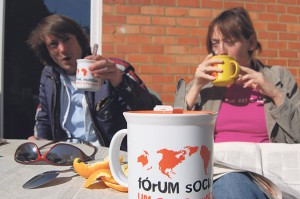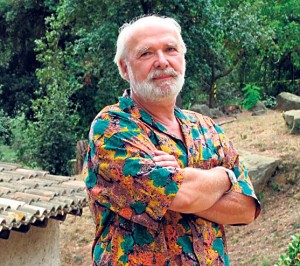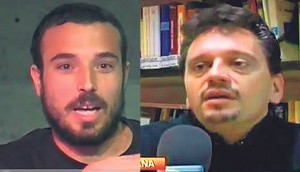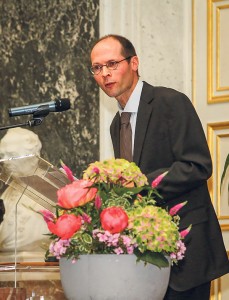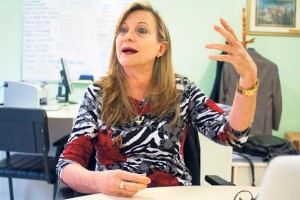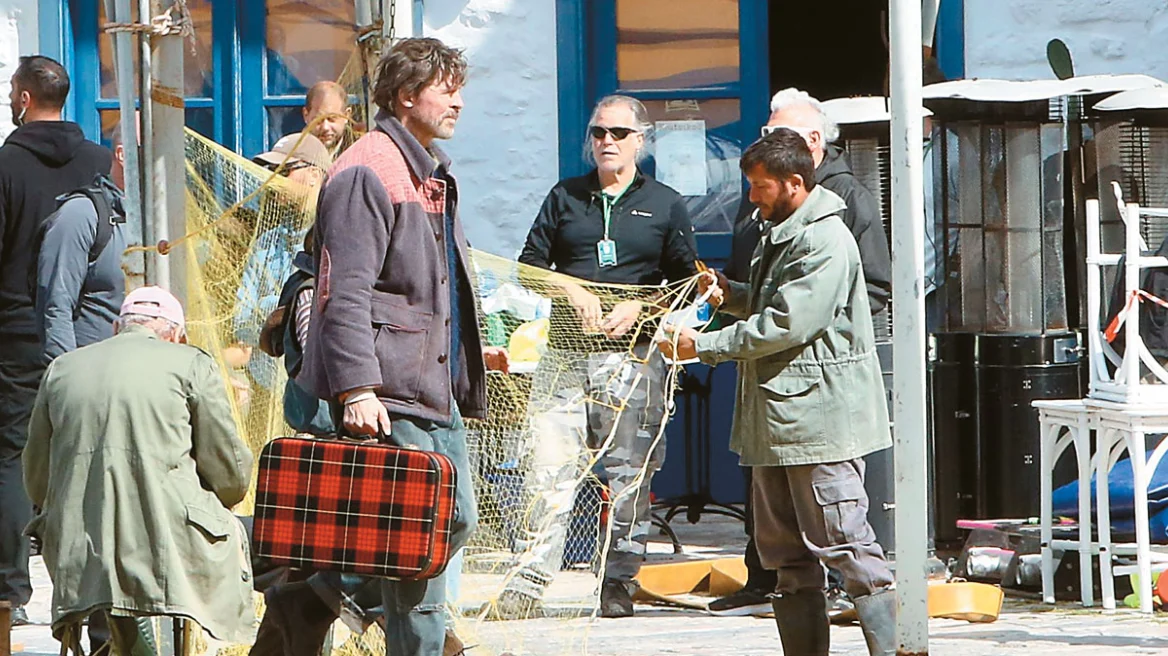A group of economists mostly described as leftist and far-left activists from Europe and Latin America comprise the group of volunteers recruited to serve as advisers to Parliament’s “committee of truth for the Greek public debt”, a “brainchild” of controversial and outspoken Parliament president Zoi Konstantopoulou.
Under the catchphrase of “Investigate it – Write it off”, the non-conventional members of the group point to far-off… Ecuador as an example for debt-laden but EU and Eurozone member Greece. Their manta is “debt audit” and their “culprit” is “illegitimate debt”. Konstantopoulou, a political “maverick” even before being nominated by her leftist SYRIZA party to preside over Greece’s 300-deputy Parliament, wants to investigate which portion of Greece’s ~175 percent of GDP debt is “illegitimate and loathsome” – her words – and should be written off.
While a very difficult endeavor, it appears that the radical leftist SYRIZA government expects the committee to provide it with at least some “ammunition” for its arguments in any future debt relief talks. The committee’s members, in fact, were greeted by the entire Cabinet during an inaugural session in Parliament’s senate chambers.
Below are the “activists-economists”, or just plain left-wing activists assigned by a majority of Parliament’s MPs with probing the Olympus-sized Greek debt and using their experience — some in the Third World, some not — in helping Greece deal with its “institutional” lenders.
Could another such unconventional group focus on political and societal corruption in Greece (i.e. fakelaki) over the past 40 decades or so be in the works? It’s worth noting that the committee’s members will offer their services for free, with Parliament only picking up the tab for their travel and stay.
Olivier Bonfond
The “alternative economist” from Belgium’s trade unions
Here’s his bio: “Olivier
Bonfond is an economist within the Committee for the Abolition of the Third World Debt. The CADTM was created in 1990 in Belgium and is an international network of individuals and local committees from across Europe and Latin America, Africa and Asia. Their mission is to offer a detailed analysis of the origins and consequences of debt in the Periphery, and options for its cancellation, they elaborate alternative policies for financing human development and they challenge political leaders, pushing them to introduce guarantees of the fundamental human rights and to implement the alternatives proposed by the CADTM and other social movements. “Bonfond was involved in the preparation of the 2011 World Social Forum. Former professor of economy in RDC, he is a trainer for the BTC, Belgian Technical Cooperation.”
Eric Toussaint,
According to his bio, “Eric Toussaint is a historian and political scientist who holds a Ph.D. from the universities of Paris VIII and Liège. He is the Spokesman for CADTM International www.cadtm.org, and sits on the Scientific Council of ATTAC France. He is the author of Bankocracy, Merlin Press, London, March 2015; he is coauthor with Damien Millet of Debt, the IMF, and the World Bank: Sixty Questions, Sixty Answers, New York: Monthly Review Books, 2010. Alongwith Pierre Gottiniaux, Daniel Munevar and Antonio Sanabria he has co-authored Les Chiffres de la dette 2015.”
Sergi Cutillas Marquez – Daniel Albarracin
Young Spanish economist Sergi Cutillas Marquez is a researcher at Barcelona’s “Observatory for Debt”, a group that over the past 15 years has tried to sensitize public opinion on the issue of debt and its elimination. The second Spaniard on the committee is Daniel Albarracin, a Ph.D in sociology and an economist with activity in various social movements against what he calls “illegitimate debt”.
Diego Borja
He melted away 70 percent of Ecuador’s debt! 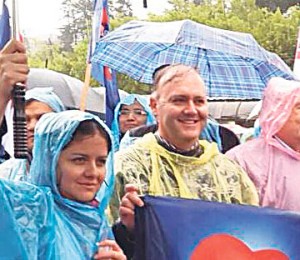
According to his own biography, “…He (Borja) is an economist and political leader of Ecuador. He is the current Economic Secretary of the Bolivarian (?!) Alliance for the Peoples of Our America –ALBA, yet he is best known as a former Ecuadorian finance minister who “under his tenure … repurchased $740 million of high interest rate bonds (Ecuador Global 2012, paying 12 percent annual interest), as well as a reduction in the overall public external debt stock (both in absolute terms, and also as a percentage of GDP, which fell below the target of 30 percent of GDP). Inflation and unemployment also fell during this period, and a projected fiscal deficit of 0.8 percent of GDP was reverted to a fiscal surplus of 1.4 percent of GDP. Economic growth was also significant, both in the oil and non-oil sectors.”
Renaud Vivien
On a website dedicated to the … Fourth International, Vivien is described as a jurist and a member of the working group on law within CADTM Belgium. Together with Eric Toussaint he is the co-authors of La Dette ou la Vie, Aden-CADTM, 2011. His article on the pro-socialist website is entitled “Why agreements with the Troika are odious”.
Michel Husson
The French advocate of … methodology 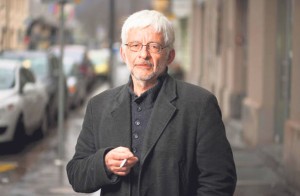
As with Vivien, Husson’s biography is found on the leftist-socialist website: “Michel Husson is an economist, in charge of employment at the Institut de recherches economiques et sociales (IRES) in Paris. He is member of the Fondation Copernic, a left-wing think tank, and of the Scientific Council of ATTAC. He has just published Un pur capitalisme, Lausanne 2008, Éditions Page Deux. One of his articles is entitled “IMF: Portrait of a Serial Killer” and another is “Toxic Capitalism”.
Ozlem Onaran
A UK-based Turkish academic known as an expert on crises and social inequality 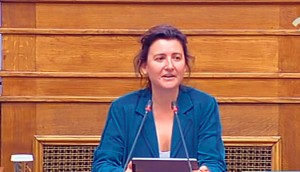
Onaran’s bio on the University of Greenwich’s site reads: “Özlem has worked at several universities in the past including the University of Westminster, the University of Applied Sciences-Berlin, Vienna University of Economics and Business, and Istanbul Technical University, before joining the University of Greenwich in 2012. Özlem’s research has been in the fields of globalization, crisis, income distribution, wage-led growth, employment, investment, development, and gender. Özlem has more than 60 articles in books and journals such as Cambridge Journal of Economics, Environment and Planning A, World Development, Public Choice, Economic Inquiry and the European Journal of Industrial Relations. She has recently directed a research project for the International Labour Organisation, and is currently working on a project funded by the Institute for New Economic Thinking and the Foundation of European Progressive Studies. She is member of the Scientific Advisory Board of Hans Boeckler Foundation, member of the Policy Advisory Group of the Women’s Budget Group, and a research associate at the Political Economy Research Institute of the University of Massachusetts, Amherst.”
Margot Salomon
The feisty LSE professor who loves to attack the “Troika” 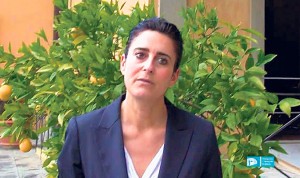
One part of Salomon’s bio on the LSE reads: “Margot Salomon is Director of the Centre for the Study of Human Rights (Acting), London School of Economics and Political Science, where she also directs the Laboratory for Advanced Research on the Global Economy, and is Associate Professor in the Law Department. Her research focuses on global economic justice, in particular the legal dimensions of world poverty and duties to distant strangers; development and international law; and human rights and economic orthodoxy. Her work explores the contribution and limits of international (human rights) law, concepts and mechanisms under conditions of globalisation, and engages with the normative paradigms of other disciplines operating in the realm of economic justice.” Her “research interests” are described as thus: “Legal dimensions of world poverty and the nature and scope of international cooperation; the contribution and limits of international human rights law and concepts to issues of global economic justice; human rights and the global economy; human rights and economic development. Other expertise: the rights of indigenous peoples; socio-economic rights; climate change; the role and responsibilities of international organisations (United Nations, World Bank etc.)”
Olivier De Schutter
On May 30th 2014, Olivier De Schutter finalized his 6-year mandate as the UN Special Rapporteur on the right to food. Olivier De Schutter served for six years at the UN Special Rapporteur on the right to food. He impressive CV, as listed on a UN webpage states: “… (LL.M., Harvard University ; Ph.D., University of Louvain (UCL)), the UN Special Rapporteur on the right to food since May 2008, is a Professor at the Catholic University of Louvain and at the College of Europe (Natolin). He is also a Member of the Global Law School Faculty at New York University and is Visiting Professor at Columbia University. In 2002-2006, he chaired the EU Network of Independent Experts on Fundamental Rights, a high-level group of experts which advised the European Union institutions on fundamental rights issues. He has acted on a number of occasions as expert for the Council of Europe and for the European Union. Since 2004, and until his appointment as the UN Special Rapporteur on the right to food, he has been the General Secretary of the International Federation of Human Rights (FIDH) on the issue of globalization and human rights. His publications are in the area of international human rights and fundamental rights in the EU, with a particular emphasis on economic and social rights and on the relationship between human rights and governance. His most recent book is International Human Rights Law (Cambridge Univ. Press, 2010).”
Daniel Munevar
A master’s degree from Yanis’ old hangout: UT Austin! 
His bio states: “Daniel is a research assistant for CADTM (Comité pour l´annulation de la Dette du Tiers Monde). He was previously fiscal advisor to the Ministry of Finance of Colombia and special advisor on Foreign Direct Investment for the Ministry of Foreign Affairs of Ecuador. He has a Masters in Public Affairs from the LBJ School at the University of Texas at Austin.” His interests include “Public finance; Public debt; Debt Sustainability Analysis; Development Economics; Financing for Development.”
Cephas Lumina
The Zambian champion of human rights 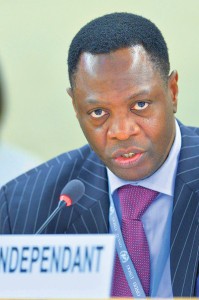
His biography on a UNHR webpage reads: “ “Dr Cephas Lumina holds an LLB with Merit (Zambia), LLM in International Human Rights Law (Essex, United Kingdom), PhD in International Human Rights Law (Griffith University, Australia), and an Advanced Diploma in International Human Rights (Abo Akademi University, Finland). He has over 25 years’ legal practice, research and teaching experience in several countries including Australia, South Africa, Swaziland, Sweden, Uganda and Zambia. He has served as a Visiting Professor at the Raoul Wallenberg Institute of Human Rights and Humanitarian Law at Lund University in Sweden, a Visiting Lecturer at Makerere University in Uganda and as a consultant to various organizations (including the United Nations, International Development Law Organization, Canadian International Development Agency, Swedish International Development Agency, Open Society Initiative for Southern Africa, Human Rights Trust of Southern Africa, Women for Change and the Court of Appeal of Tanzania). He was appointed the United Nations Independent Expert on the effects of foreign debt and other related international financial obligations of States on the full enjoyment of all human rights, particularly economic, social and cultural rights in March 2008 and served until end of May 2014 in this function.”
Maria Lucia Fattorelli
She is described as “a member of Ecuador’s debt audit commission, an advisor to the commission of public debt in Brazil and coordinator of Citizen Debt Audit.”
Patrick Saurin
An activist banker who specializes on the subject of ‘toxic products’ 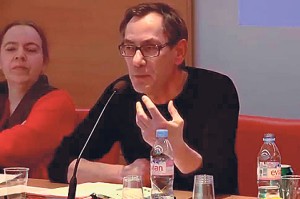
Patrick Saurin describes himself as an account manager with 10 years’ experience with public authorities and savings banks. He is a member of the National Executive South BPCE, ACC and CADTM France and the author of “Toxic Loans: An affair of state.”
Ask me anything
Explore related questions

